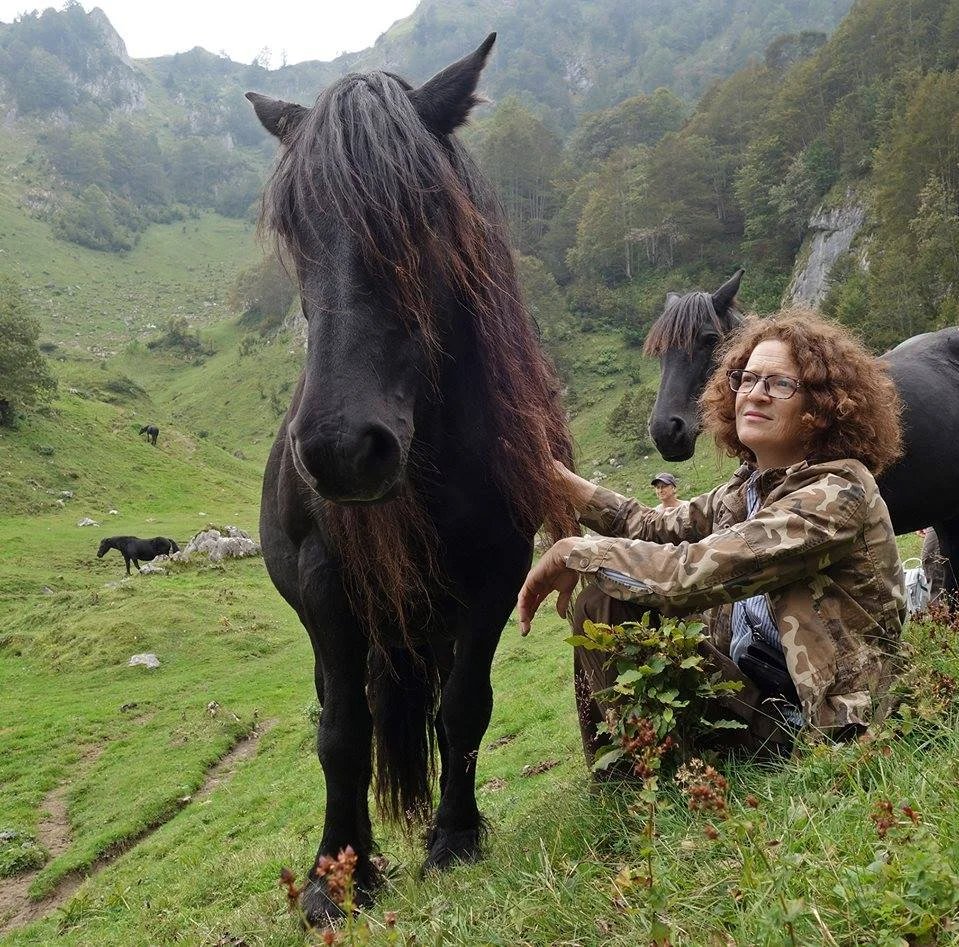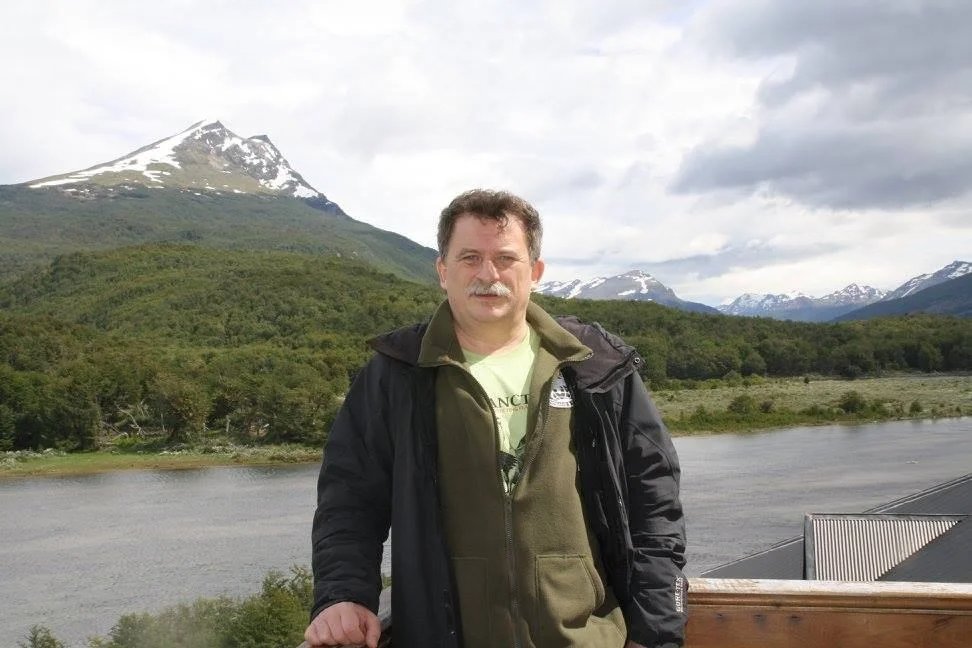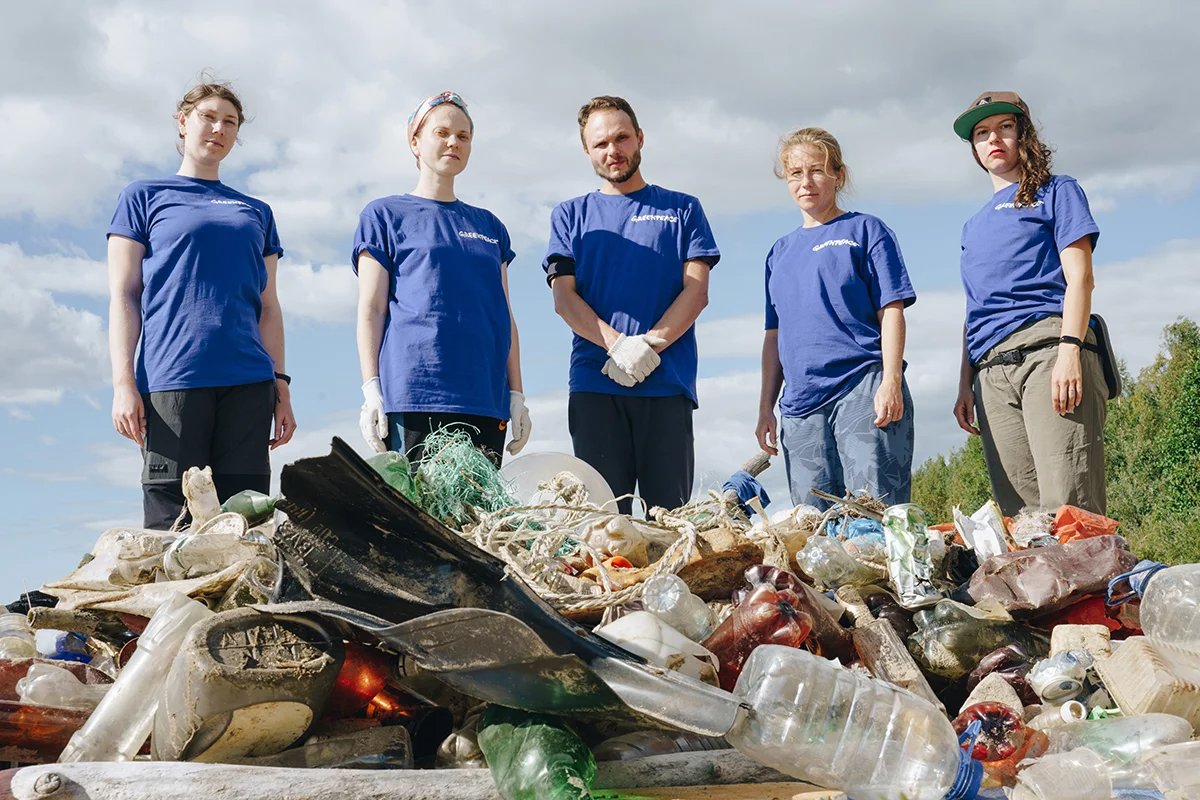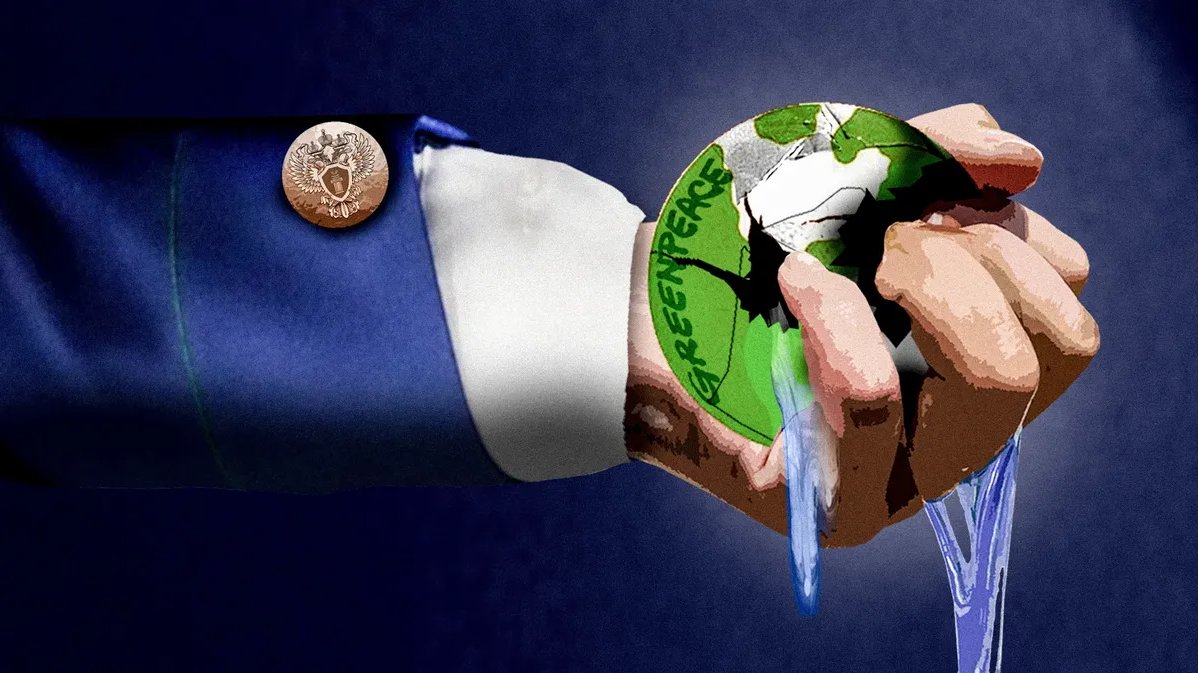Greenpeace and the World Wide Fund for Nature (WWF) have now both been labelled “undesirable organisations” in Russia. Greenpeace left the country; WWF Russia is trying to stay after breaking its ties with the international organisation.
Here, Novaya Gazeta Europe investigates why the WWF and Greenpeace were targeted and how they have changed the Russian conservation scene. We recount their main achievements, discuss how they ended up on the Kremlin’s blacklist, and consider what their absence will mean for the Russian conservation movement.
This article references the Russian WWF and Greenpeace websites. As of 26 June, both websites had been removed from the internet.
Undesirables
On 22 June, the Russian Prosecutor General’s Office labelled the WWF an “undesirable organisation,” a designation even more serious than the “foreign agent” title it had held since March. Justifying the decision, the office wrote that WWF Russia was publishing “biassed assessments aimed at shackling the economic development of Russia.”
On May 19, Russia also added fellow environmental giant Greenpeace to the list of “undesirable” organisations. As a result of the label, Greenpeace closed their Russian office, writing that the designation made the “continuation of any Greenpeace activities in Russia illegal.”
The official government memo had claimed that Greenpeace posed “a threat to the foundations of the constitutional order and security of the Russian Federation.”
“Actually, the exact opposite is true,” environmental activist Dmitri Lisitsyn wrote on Facebook when the decision was announced. Greenpeace protects Russian citizens against threat, he wrote, working to prevent legislation “detrimental to Russia and its citizens.” Lisitsyn had been the head of Sakhalin Ecowatch, an environmental group that the government labelled a foreign agent and then shut down — along with others like the “42” movement and “Friends of the Baltic” — in 2022.
Now, the state’s repressive machine is progressing from these little-known organisations to the giants of the conservation scene. Announcing the closure of its office, Greenpeace expressed its categorical disagreement with the authorities’ statement. It sent a letter to its supporters, warning them that an affiliation with Greenpeace could be “dangerous” for them.
“We want to believe that a time will come when Greenpeace can return to Russia,” they wrote.
WWF Russia have taken a different approach to their blacklisting. Instead of closing their office, they have officially severed all ties with the international WWF, removing the shared logo and acronym. WWF Russia has been an independent national organisation since 2014, but until last week, it still paid a yearly fee to the WWF for use of the panda logo and WWF abbreviation.
But Vsevolod Stepanitsky, honoured ecologist and former employee at the Russian WWF, said he was “sceptical” that an organisation labelled a foreign agent could “continue to operate” for long. The exit of the WWF from Russia will mean the loss of “highly qualified support,” Stepanitsky said.
All employees of WWF Russia are Russian citizens, and many of them are recipients of national and international prizes. Six employees have been named Honoured Ecologists of Russia, two have been awarded the Order of Honour of the Russian Federation, and one, Alexey Kokorin, received the Nobel Peace Prize in 2007 as part of an international group of climate scientists. In 2021, its budget was 1.1 billion rubles (€12.6 million based on the average exchange rate for 2021), about 2/3 of which came from abroad — although the WWF press service said the WWF was “proud” that Russian donations were increasing.
The Russian offices of both Greenpeace and the WWF opened their doors in the early nineties with financial and administrative help from their headquarters in the West. The launch of WWF Russia in 1994 was led in large part by an American ecologist named Laura Williams who lived in Kamchatka until her death in 2018.
Government officials have used these connections to the West — and the organisations’ “hindering of economic development” — to rationalise previous efforts to include Greenpeace and the WWF on the list of foreign agents.

Laura Williams. Photo: Facebook
Trouble brewing
In recent years, both organisations have drawn increasingly powerful critics. Twenty years ago, Putin implied that he would consider becoming an environmental activist after his term as president ended. But in the last five years, the relationship between the Russian authorities and environmentalists has soured significantly.
In 2017, Sergey Ivanov — Putin’s Special Representative for Environmental Protection, Ecology, and Transport — called Greenpeace an “extremist organisation” in an interview with Kommersant. Last year, he accused the WWF of “bribing journalists” and charged Greenpeace with falsifying data related to the 2020 Avacha Bay disaster.
Nikolay Nikolaev, chairman of the State Duma Committee on Natural Resources, ordered that Greenpeace be investigated as a possible foreign agent in 2018. When that attempt was unsuccessful, he commissioned repeat investigations in 2019 and 2020.
And Rashid Ismailov, head of the Russian Ecological Society, said in April 2022 that unless Greenpeace and the WWF were registered as undesirable, “Russia’s environmental sovereignty [would be] at stake.” Ismailov justified his claim on economic grounds, blaming the organisations for creating a “negative public opinion” about “large infrastructure projects of the Russian Federation.”
But the organisations’ connection to the West is becoming an increasingly common rationale.
In November, the Chukotka regional government terminated their cooperation with the Russian WWF because, they said, “we are opposed to the collective West in defence of our Motherland. Today, many NGOs […], funded by countries unfriendly to us, assist in the information and psychological war against Russia.”
At that time, WWF Russia told Novaya Gazeta Europe that they were continuing with over 40 initiatives in Chukotka, including the bear patrol service, despite the government’s termination of their agreement.
Key differences
Although they now share the “undesirable” designation, a key difference between Greenpeace and the WWF is their historical relationship with the state. Greenpeace has always had a fraught relationship with the authorities; it has not been afraid to openly oppose proposed legislation or business initiatives, and its information campaigns have been directly responsible for the adoption of bills promoting protection of natural areas.
By contrast, the WWF is known among Russians as a “loyal” organisation because of its close cooperation with government agencies and even “pollutant” companies like oil giants Lukoil and Rosneft, as well as Russian Railways. This was why its addition to the foreign agent list came as such a surprise. Just two years ago, the Ministry of Natural Resources signed an agreement with WWF Russia in which the two entities agreed to cooperate. In 2019 and 2020, the Russian WWF had signed similar agreements with regional authorities including the governments of the Murmansk, Altai, and Kamchatka regions.
Former WWF employee Vsevolod Stepanitsky told Novaya Gazeta Europe that cooperation with the state had always been part of the Russian WWF’s mission. The fund was first established with official support from the Ministry of National Resources, and it was always intended to be “a form of public assistance to state activities.” That the state is now rejecting that assistance is, in Stepanitsky’s view, “absurd and unfair.”

Former WWF employee Vsevolod Stepanitsky. Photo: National project "Ecology"
Stepanitsky’s own career demonstrates the historical link between the WWF and the state: before he began working for the WWF, Stepanitsky served as a high-ranking official at the Ministry of Natural Resources. “Until the very end, I hoped they would not make the decision [to include the WWF on the list of foreign agents],” he said.
But the Russian WWF’s response to its blacklisting is still more proof of its different relationship to the authorities. While Greenpeace made no effort to protest its classification, the WWF in March announced its intention to appeal the Ministry’s decision about its “foreign agent” status.
Greenpeace representatives said the appeal made it “obvious” that the WWF was “not going to [leave]” Russia.
Another difference between the two environmental organisations is their financial policy. As a rule, Greenpeace — unlike the WWF — does not accept donations from governments, political parties, or companies. “We carefully vet all donations, and if the money came from a corporate or government account, we return it,” the Russian branch of Greenpeace posted on their website.
Legacies
Despite these differences, however, Greenpeace and the WWF have often joined forces productively, Greenpeace representatives told Novaya Gazeta Europe. When the WWF received its “foreign agent” designation, Greenpeace immediately issued a statement in which they called the Ministry of Justice’s decision “absurd” and wrote that the new status was an “unfair reward for many years of [WWF’s] work benefitting the country and its inhabitants.”
The two organisations have worked together on several petitions, including one to protect forests along salmon spawning rivers and another to thwart a planned ski resort on the Lago-Naki plateau in the Caucasus. “You can’t even count the number of times we’ve stood together in defence of Lake Baikal,” the representative said.
Taken individually, the two organisations’ list of successful projects “would fill several volumes.” In the 30 years since its founding, the Russian WWF has implemented more than 1500 field projects and created more than 150 federal and regional protected natural areas. Other major WWF accomplishments include the establishment of a “bear patrol” system — designed to protect polar bears and reduce confrontation with humans — and the restoration of the Persian leopard and bison populations.
Greenpeace Russia has undertaken several initiatives related to chemical contamination. It has also fought fiercely for Russia’s forests, investigating illegal logging, launching reforestation initiatives.
In 1995, it successfully added the Virgin Komi Forests to the list of UNESCO World Heritage Sites, protecting Europe’s largest wild northern forest from logging and oil extraction.
Both Greenpeace Russia and WWF Russia draw in so much European money in part thanks to Russia’s biodiversity, explained Alena Udalenkova, who worked as a fundraiser at the Russian WWF for three years. Environmental groups like the WWF often prioritise areas with “high concentrations of biodiversity” because “that way, if parts of the world’s ecosystem are destroyed or severely damaged [but these key areas remain under protection], people will be able to restore the planet’s biodiversity.”
Russia contains four of these specially protected ecoregions: the Arctic (further subdivided into the Barents Region and Kamchatka), the Altai-Sayan Mountains, the Amur, and the Caucasus.
The four regions contain thousands of unique plant, insect, and fungi species and are home to dozens of “specially protected species” including snow leopards, Persian leopards, Amur tigers, and wild reindeer. The Arctic regions contain one of the world’s largest wildlife reserves, a 4,000-year-old forest, and the most extensive salmon spawning ground on the planet.
“All of our actions have been aimed at the well-being of Russia and its citizens,” the Greenpeace representative said, “including those citizens who are now unjustifiably calling these environmental organisations ‘foreign agents.’”

Photo: Greenpeace
What does the future hold?
In the past few years, several pro-state environmental initiatives have appeared — with the goal, apparently, of replacing international organisations like Greenpeace and the WWF.
Last year, the Russian government created a national environmental fund called “Compass” which counts among its trustees the head of Rosprirodnadzor, Russia’s environmental regulator, and the chair of the State Duma Committee on Environmental Protection. “For a long time, the largest international environmental funds have worked to discredit our country in the environmental sphere and environmental policy,” the Compass website reads.
Stepanitsky drew a parallel between the current situation and events in the early 1950s, when Stalin’s administration fired the top scientists at the All-Russian Society for Nature Conservation (ASNC) and replaced them with candidates of its own choosing. They also changed the organisation’s name to the “All-Russian Society for the Promotion of Nature Protection and Green Spaces.” (This was also the time of the “great Stalinist defeat,” in 1951, for the system of Russian state nature reserves, Stepanitsky recalls.)
The ASNC retained its former name but never regained its scientific credibility. Today it is led by former hockey player Vyacheslav Fetisov. Fetisov doesn’t garner much respect among environmentalists — in public, he talks more about sports than ecological issues — but he has reached out to several former employees of the Russian WWF and Greenpeace, inviting them to join the ASNC. As recently as last year, he spoke of the importance of cooperation between the WWF, Greenpeace, and the ASNC.
Despite his positive attitude toward these “foreign agents,” Fetisov maintains a close relationship with Putin, who recently congratulated him on his 65th birthday.
For Roman Gilmintinov, a doctoral student at Duke University who specialises in environmental history, the departure of the WWF and Greenpeace from Russia is just one part of a larger story. Businesses may now be released from environmental obligations, but Gilminitov said he isn’t sure what reaction we will see from local populations in the regions — mostly in the north and east — where these projects might take place. The “repressive apparatus in our country, although powerful, is very [geographically] concentrated,” Gilminitov said, pointing to recent successful protests in a number of small settlements in Kuzbass.
“I think there’s a fork in the road here,” Gilmintinov said. “We could see terrible tragedies, the destruction of the most valuable ecosystems and natural treasures. Or we could watch the glorious stories of the struggle for these things.”
Edited by Lucy Silbaugh
Join us in rebuilding Novaya Gazeta Europe
The Russian government has banned independent media. We were forced to leave our country in order to keep doing our job, telling our readers about what is going on Russia, Ukraine and Europe.
We will continue fighting against warfare and dictatorship. We believe that freedom of speech is the most efficient antidote against tyranny. Support us financially to help us fight for peace and freedom.
By clicking the Support button, you agree to the processing of your personal data.
To cancel a regular donation, please write to [email protected]

